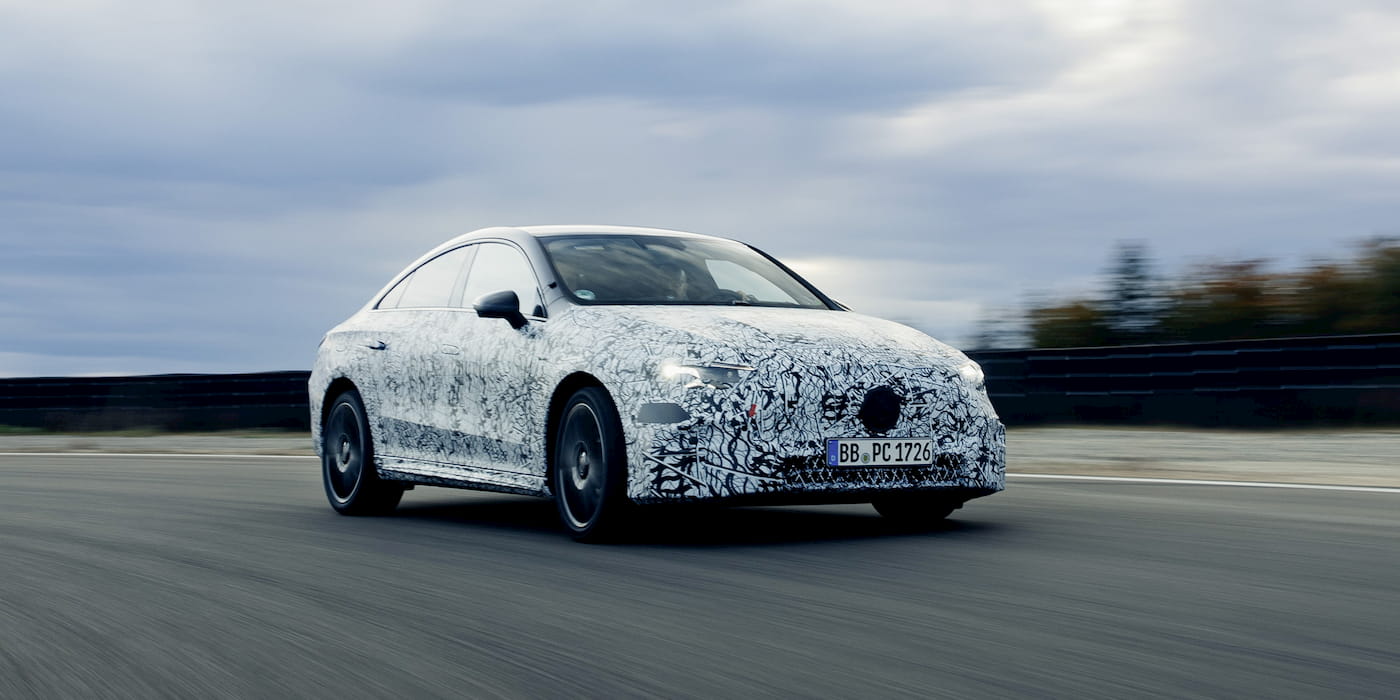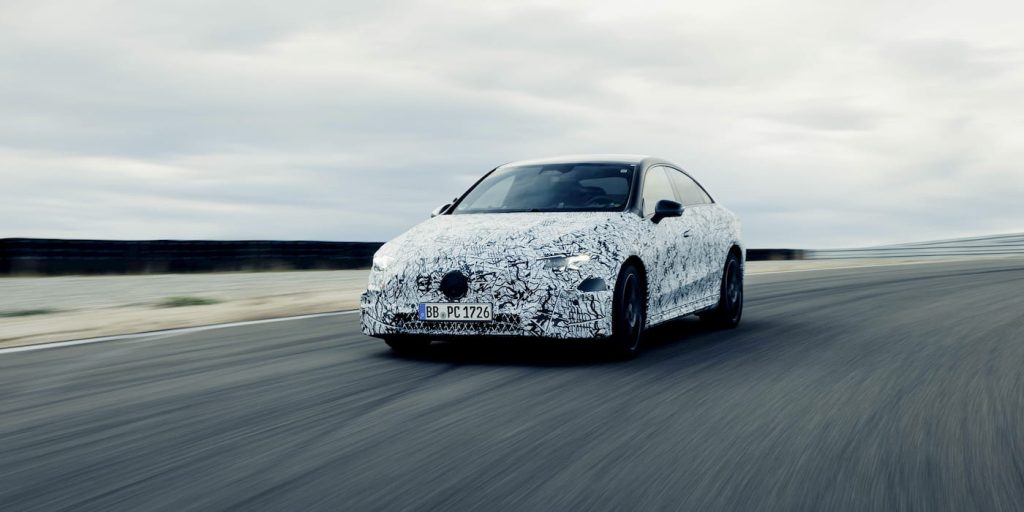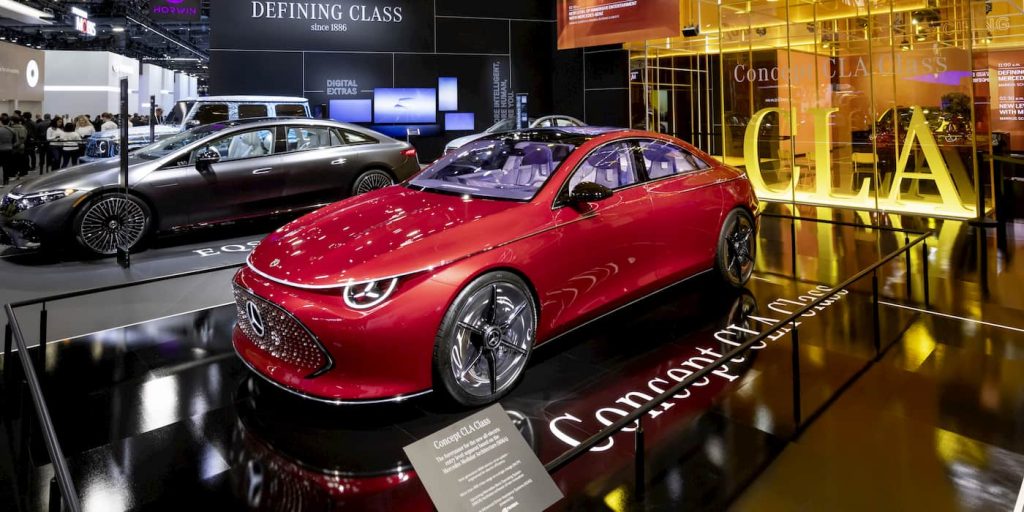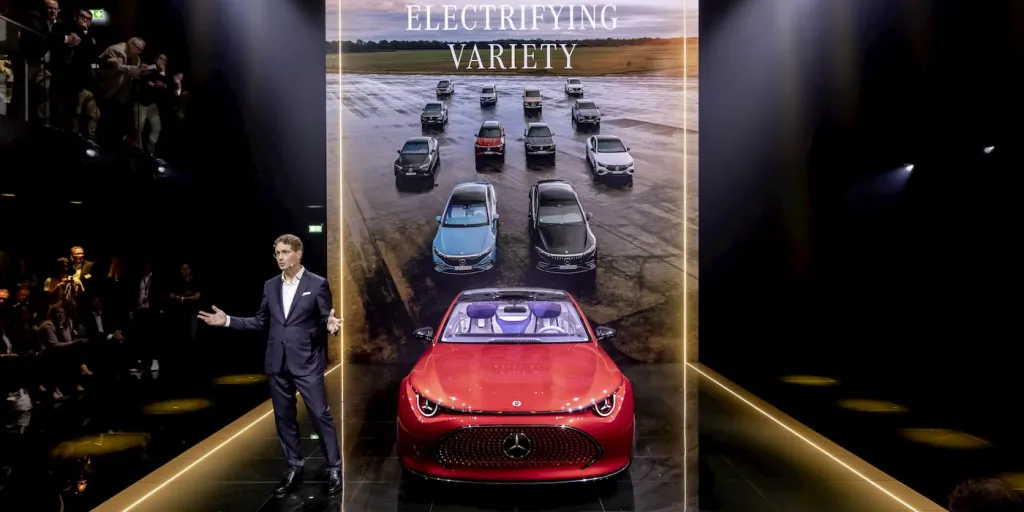
The race for the “holy grail” of EV batteries is heating up. Mercedes-Benz is now testing EVs with solid-state batteries on the road, which could unlock over 600 miles of driving range.
Mercedes solid-state battery-powered EVs hit the road
Mercedes is working with US-based Factorial Energy to launch the new battery tech, promising more driving range, faster charging, and efficiency.
Last summer, Factorial delivered its first solid-state battery cells based on its propriety FEST (Factorial Electrolyte System Technology).
Mercedes and Factorial took it a step further, revealing the more advanced all-solid-state Solstice battery in September. The new batteries are being co-developed to power Mercedes’ next-gen electric models. With a sulfide-based solid electrolyte, the battery is safer and more efficient.
With a “breakthrough” energy density of 450 Wh/kg, Factorial said the new Solstice battery is expected to provide 80% more driving range than current lithium-ion batteries.
According to Autocar, Mercedes is already testing EVs with solid-state battery tech on the road. The tests are taking place in the UK using an EQS prototype equipped with the new batteries.

Although full specs have yet to be confirmed, Mercedes said the EQS’s 12-module battery housing was flexible enough for different configurations.
Mercedes expects the new battery to extend the driving range by about 25%. The current EQS 450+ rated with up to 511 WLTP miles range would suggest a driving range of over 620 miles.

Factorial aims to unlock over 600 miles of driving range with 40% weight savings compared to conventional Li-ion batteries. The company says Solstice is 33% smaller than a current 90 kWh battery at 580 lbs.
In December, Factorial announced a major milestone after its Solstice all-solid-state battery cells achieved 40 Ah capacity. The company is working with other major automakers, including Hyundai and Stellantis, to advance solid-state battery technology and aims to launch solid-state batteries by 2030.

According to Mercedes chief tech officer Markus Shafer, the new Solstice batteries will “set new standards in range, cost, and performance. ” Mercedes expects to be producing solid-state batteries at scale by the end of the decade.
Electrek’s Take
Mercedes is among several automakers and other companies developing solid-state batteries in hopes of unlocking more range, safety, and efficiency.
The news comes after local reports earlier this month suggested Hyundai will reveal its all-solid-state EV battery demo line in March. Japanese rival Honda unveiled its pilot line to the public in November.
Top comment by Connor Paull
Those are some pretty crazy numbers, but honestly range above maybe 350 miles has diminishing returns to me. I'd much prefer they target that kind of range with as small and light a battery as possible.
Stellantis announced plans to launch a fleet of electric Dodge Chargers powered by Factorials solid-state batteries in 2026.
Hyundai, Honda, Toyota, Stellantis, and others aim to mass-produce solid-state batteries by the end of the decade.
And don’t forget that Chinese EV battery leaders BYD and CATL are also racing to launch solid-state batteries. Which company will come out on top?
Source: Autocar
FTC: We use income earning auto affiliate links. More.

Comments